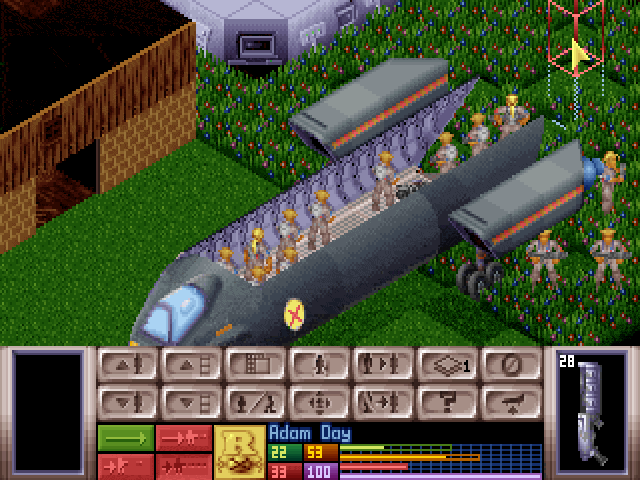The road that brought the alien defense series X-Com back to us has been a winding one. Rumors of an update or remake were never far away, and at one point, a game with that title appeared but was something more along the lines of BioShock, with first-person shooter gameplay and heavy influences from Fallout, which did not endear the previous games’ fans to the notion of a remake. However, after years of subsisting on the original UFO Defense, it appears that Firaxis games have finally gotten it right with XCOM Enemy Unknown.
A playable demo is available on Steam, and after playing it through twice, I can say this is more than likely the game fans have been waiting for. The situation is the same as the original game: aliens are invading Earth, abducting or flat-out slaughtering human civilians unchecked. To stop them, a multinational council is formed to fund and oversee XCOM, an elite paramilitary force dedicated to preventing and investigating these attacks. With a handful of rookie soldiers, very little funding to begin with, and only a single base to protect the entire world, you as the Commander of XCOM start in a very unenviable position. Oh, and if you screw up, you may lose your funding, to say nothing of letting the world get conquered by malevolent extraterrestrials.

Old vs. new.
At its heart, XCOM appears to be hewing as close to the original formula as possible: go from broad real-time base-building and research to turn-based tactical isometric combat. Technology has advanced, of course, so XCOM employs the Unreal engine for its rendering. I’m sure there will be purists who miss the stylized, cartoonish art of the original game, and while I admit that style gave the original a lot of character, the new models and animations make it clear this is an XCOM game, not just another futuristic shooter dressed up as an old favorite.
The maps and character designs are colorful and varied, tossing out the grayish-brown aesthetic of certain other action games with guns. Instead of mucking about with time units, each soldier gets two actions, which can be used either for movement or for shooting. Some weapons, like the sniper rifle, require you to not move on your turn, while others allow you to shoot then move, or move before shooting. In addition to these basic aspects, each soldier now has a specific specialization, with assault troopers being able to “run and gun” while heavy weapons guys carry rocket launchers. The engine even breaks up the turn-by-turn movement with occasional dynamic zooms and pans, giving you a very “in the thick of it” feel for the action.
Mary the sniper lines up a shot.
The demo doesn’t show much of the new base mechanics, but instead of an overhead view, we see it from the side, with soldiers relaxing or training in the barracks while scientists consult their research in the lab. Characters now have distinct voices and personalities, and the international nature of XCOM is emphasized. The promise being made, or at least implied, is that research and fabrication between missions will remain important, as your soldiers still only begin with the most barebones of equipment.
All that said, I think the interface is a bit dodgy in places. It was difficult, at times, to adjust the map properly to see where and how to move my soldiers into better firing positions. As neat as the dynamic events are during combat, once or twice the camera didn’t seem to fit into place properly and I ended up looking at the barrel of the gun instead of at my soldier as they fired. Finally, and this is purely an aesthetic thing, I can do without the initial assault rifles of the squad being roughly the size of a Smart car. They’re just ridiculously big.
However, playing the demo has definitely brought back good memories and whet my whistle for this newest iteration of XCOM. If the promise of the base layout delivers, and combat within the game evolves as it did in the previous titles, this is a sure-fire winner. XCOM Enemy Unknown releases on October 9, and can be pre-ordered on Steam.





